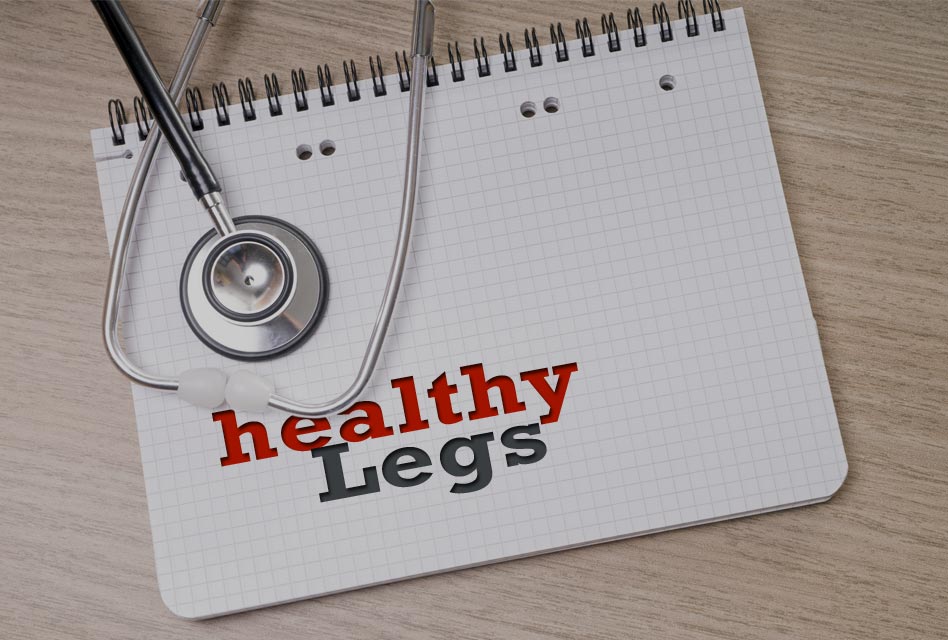5 Great Reasons That Varicose Vein Treatments Are Often Postponed
Tips on Why You Should Stop Ignoring the Varicose Veins in Your Legs
Most people neglect their varicose veins much too long.
They delay treatment until there’s a complication.
Most people sense that that they should have come in sooner.
Finally, in the advanced stages, friends or family end up recommending that they see a doctor.
Fortunately, with modern minimally invasive treatments, even the most problematic varicose veins can be treated despite their extent, size, location and severity.
When varicose veins are neglected, complications can be the result.
Blood clots in the varicose veins called thrombophlebitis, bleeding, and skin changes like pigmentation and ulcers can occur.
In all of these cases, the problem is treatable.
Sometimes in more advanced cases, the treatment must be broken into stages.
Staging problematic cases makes it more manageable in terms of time spent on the procedure table, complications, and recovery.
Waiting too long to have your veins treated is a common problem.
There are many reasons for that.
Reasons people put off their unwanted veins and wait too long before seeking help:
- Perhaps a family doctor years ago misinformed them that their varicose veins were cosmetic.
- Sometimes the veins don’t hurt even though they are large and extensive.
- Often the cost of medical procedures scares people away.
- Some people are afraid that the only available option is stripping their veins like their relative had done years ago.
- Some women were told to wait until they were done having babies.
It’s estimated that over fifty million people suffer from varicose veins in the United States.
Despite its prevalence, there are many misconceptions and myths that delay varicose vein treatment.
It’s critical that the excuses for not having treatment be dispelled.

Ready?
Let’s do this.
Let’s explore some of the most common excuses in delaying treatment.
#1 Your family doctor may have told you to ignore them.
That’s a recommendation that’s easy to accept if they are small and asymptomatic.
Sometimes primary care doctors tell you to wear support stockings if they hurt, ache or cause your legs to swell.
Both recommendations are incorrect.
It has been shown by vein experts in the United States and Great Britain that trying support stockings as the first option in treating varicose veins is not correct.
In general, most people know intuitively that when you take off support stockings that the varicose veins quickly reappear.
Besides that, it’s extremely difficult to wear heavy, hot and uncomfortable stockings for life.
Most people shake their heads at that option.
#2 Some large varicose veins don’t hurt or cause symptoms.
In the early stages, varicose veins often don’t ache or cause much discomfort.
However, venous disease is progressive.
That means as time passes, they will inevitably enlarge.
As the vein walls stretch, symptoms usually occur.
It makes no sense from a treatment standpoint to wait until the veins get larger, more extensive and more difficult and painstaking to treat.
Usually even in the earlier stages, there is some degree of discomfort which some people choose to ignore.
#3 Some people don’t like to go to the doctor for their varicose veins.
This is understandable.
Intuitively, we all know that a simple pill or recommendation is not going to fix the problem.
The fear of the unknown, time off recovering from procedures, possible pain, and the potential for complications are common fears.
These fears are even worse than not looking your best on Instagram.
The essential point in regards to treatment is that modern minimally invasive procedures do not involve scars or surgery, have a low risk of complications, and have little downtime so you can return to work right away.
The stripping operation is associated with pain, scarring and high recurrence rates.
It makes people shudder.
Stripping means ripping the veins out under a general anesthetic in the hospital.
With the newest modern techniques, your varicose veins can be safely and comfortably treated in an outpatient office setting.
#4 The cost of varicose veins is worrisome.
It’s often covered by insurance.
Save money by doing it now.
Do it now before insurance costs go higher.
They will you know.
It’s like prepaying your taxes in high tax states.
When varicose veins are symptomatic, most insurance companies consider their treatment as medically necessary.
That means that they will cover it just like any other medical problem.
You can save your shekels for the cosmetic spider veins.
To meet the insurance company’s requirements, photographs and a venous Doppler ultrasound are usually required to document medical necessity.
Recently, Medicare has been discussing the possibility of cutting back the coverage of routine symptomatic varicose veins that have not yet progressed to the more advanced stages of skin changes and ulceration.
Commercial insurance companies usually follow Medicare’s lead.
For financial reasons, consider having your varicose veins treated before this occurs.
#5 It was believed that women should wait until after they are done having babies to have their varicose veins treated.
This is no longer the standard of care.
Waiting as your varicose veins continue to enlarge through progressive pregnancies only makes it more difficult to treat them.
The pain of enduring these huge and aching veins during the latter pregnancies can be avoided by having early treatment.
Although varicose veins sometimes recur after pregnancy, they are much more manageable in terms of the resulting symptoms and their subsequent treatment.
Conclusion
The purpose of this article is to keep you from procrastinating.
You need to have your varicose veins evaluated by a vein specialist.
Delaying your varicose vein treatment only makes the treatment more difficult and complicated.
How awesome would it be to have healthy and great looking legs again?
There’s no reason to put off having your varicose veins fixed or wait until they become worse.
They will definitely get bigger and be more challenging to treat over time.
They won’t improve.
Postponing it makes no sense.
Complications like phlebitis, bleeding and ulcerations of the skin can result if you keep their treatment in a holding pattern.
Now you can’t say you didn’t get the memo.
Call us at 724-987-3220 to get expert advice from the vein specialist with the longest experience and the highest qualifications in Pittsburgh.

